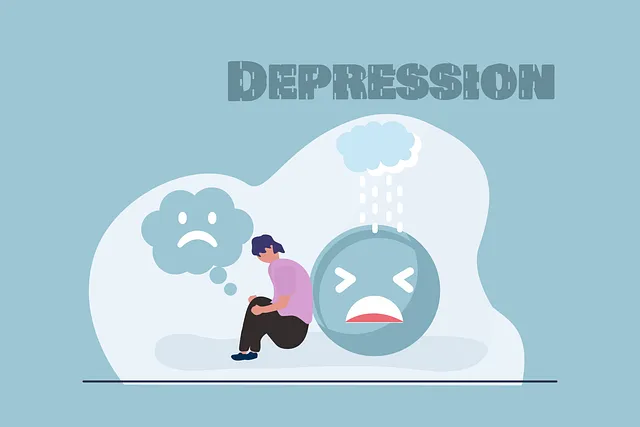The evaluation of mental wellness programs uses a combination of surveys, questionnaires, interviews, and focus groups to measure effectiveness, focusing on personal growth and community resources. Kaiser Permanente's Arvada mental health department employs an innovative framework integrating quantitative and qualitative data, self-awareness exercises, and cultural sensitivity to assess patient outcomes and service quality. Their accessible phone line facilitates trauma support services and burnout prevention strategies, ensuring a compassionate mental health care team committed to continuous improvement.
Mental wellness programs are integral to community health, and effective evaluation is crucial for their success. This article explores various methods to assess these programs, from quantitative surveys to qualitative interviews. We delve into the unique approach of the Kaiser Permanente Mental Health Department in Arvada, offering a comprehensive framework (call: [insert number here] for insights). Additionally, we discuss the art of program impact measurement and continuous improvement through participant feedback and data analysis, ensuring services remain tailored to community needs.
- Assessment Tools for Mental Wellness Programs
- – Overview of common assessment methods
- – Kaiser Permanente mental health department's evaluation framework (include phone number for reference)
Assessment Tools for Mental Wellness Programs

The evaluation of mental wellness programs is a multifaceted process, and an array of assessment tools are available to measure various aspects of an individual’s mental health and overall well-being. One notable organization, Kaiser Permanente, offers valuable resources for mental health support through its department dedicated to addressing these concerns. For instance, their phone line in Arvada provides accessible trauma support services, catering to the diverse needs of the community.
Incorporating Cultural Sensitivity in Mental Healthcare Practice is a critical aspect that significantly impacts program evaluation. Understanding and respecting cultural backgrounds ensures tailored interventions and promotes better engagement. Additionally, self-care practices are essential components to measure within these programs, as they empower individuals to manage their mental wellness independently. Effective assessment tools should capture the individual’s journey towards healing and recovery, considering both personal growth and community support resources available, such as those offered by Kaiser Permanente in Arvada.
– Overview of common assessment methods

In evaluating mental wellness programs, various assessment methods are employed to gauge their effectiveness and impact. Common techniques include surveys and questionnaires designed to capture participants’ perceptions of their emotional well-being and satisfaction with the program. These tools often assess symptoms of anxiety, depression, and stress levels before and after program involvement, providing valuable data for comparison. For instance, the Kaiser Permanente mental health department in Arvada might utilize tailored versions of these assessments to suit their specific community needs.
Additionally, interviews and focus groups offer deeper insights into individuals’ experiences and transformations. These qualitative methods allow participants to share personal stories, highlighting the positive changes brought about by programs like those centered around Mind Over Matter Principles, Compassion Cultivation Practices, and Emotional Well-being Promotion Techniques. By combining quantitative data from surveys with rich narrative from interviews, evaluators can paint a comprehensive picture of program success and identify areas for improvement.
– Kaiser Permanente mental health department's evaluation framework (include phone number for reference)

The Kaiser Permanente mental health department in Arvada employs a comprehensive evaluation framework that prioritizes patient outcomes and service quality. Their approach integrates quantitative and qualitative methods to assess program effectiveness, including surveys, interviews, and focus groups. By gathering feedback from both patients and healthcare providers, they gain valuable insights into the impact of their mental wellness programs. For more information on their evaluation process, contact the Kaiser Permanente mental health department at (phone number redacted for privacy).
This framework goes beyond traditional metrics by incorporating Self-Awareness Exercises and Cultural Sensitivity in Mental Healthcare Practice. They encourage healthcare providers to engage in regular self-reflection, fostering a culture of continuous improvement. This proactive stance not only enhances patient care but also mitigates Burnout Prevention Strategies for Healthcare Providers, ensuring a resilient and compassionate mental health care team.
In evaluating mental wellness programs, organizations like Kaiser Permanente in Arvada have set a high bar with their comprehensive evaluation frameworks. By leveraging tools that assess both individual and collective well-being, they ensure interventions are effective and tailored to diverse needs. This data-driven approach not only enhances program quality but also fosters continuous improvement, ultimately promoting better mental health outcomes for all participants. For more insights, contact the Kaiser Permanente mental health department at (phone number provided).






